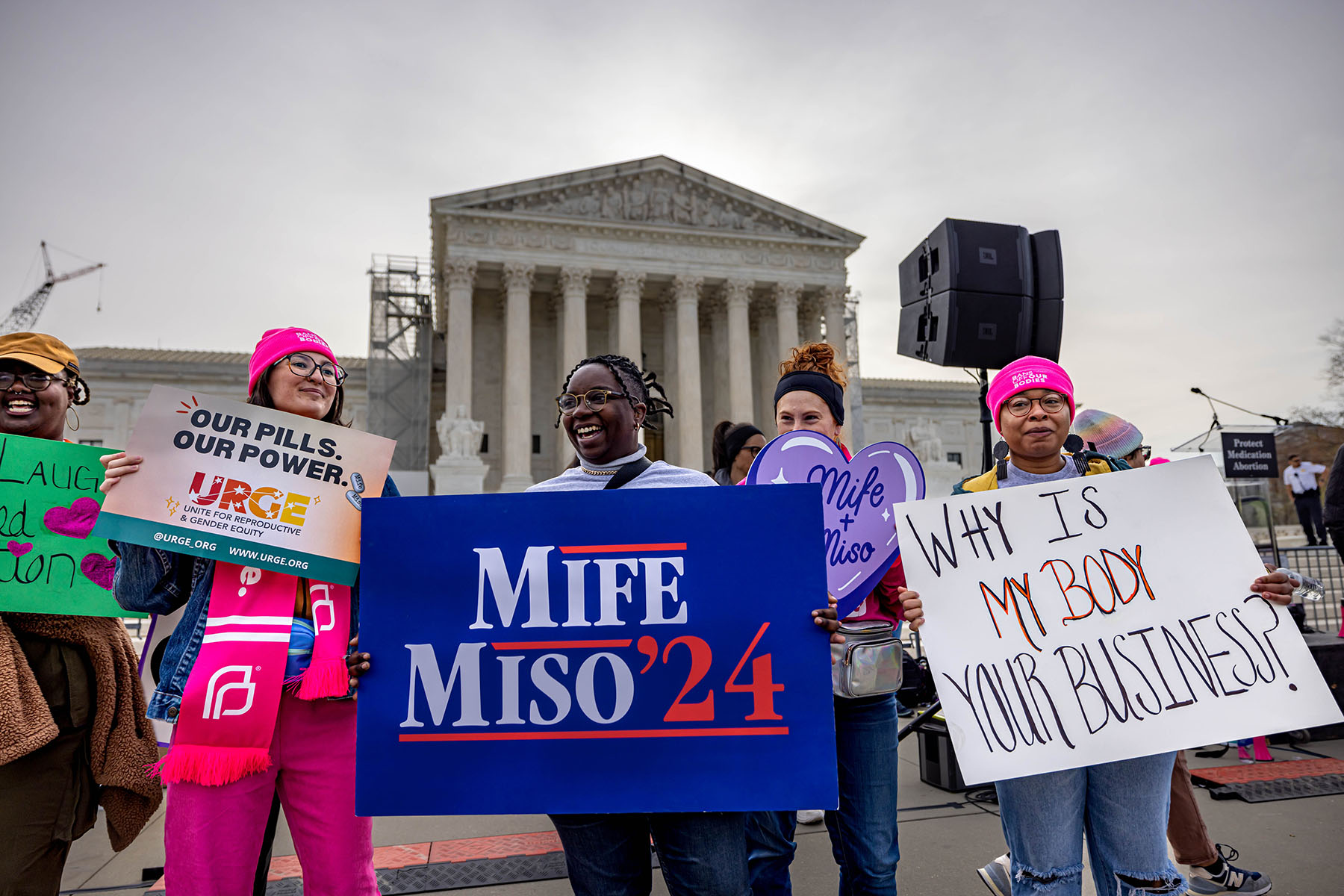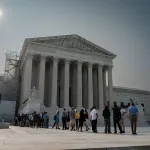The Supreme Court has unanimously dismissed a case that would have limited access to mifepristone, one of the two drugs used in a medication abortion. The decision leaves access to the abortion drug unchanged for now.
In the ruling, the high court’s justices said that the collection of anti-abortion physicians challenging the drug’s availability had not shown they had been directly harmed by the federal Food and Drug Administration’s 2016 and 2021 decisions to expand the use of mifepristone. As a result, the court’s majority said, they did not have the right to file suit.
“The federal courts are the wrong forum for addressing the plaintiffs’ concerns about FDA’s actions,” said the opinion, authored by Justice Brett Kavanaugh. “The plaintiffs may present their concerns and objections to the President and FDA in the regulatory process, or to Congress and the President in the legislative process. And they may also express their views about abortion and mifepristone to fellow citizens, including in the political and electoral process.”
Mifepristone is used in combination with another drug, misoprostol, to induce medication abortions. The regimen, which data shows is very safe and effective in terminating a pregnancy, has surged in popularity in the past few years, and now accounts for more than 60 percent of all abortions.
It has also become a key tool for people seeking to circumvent state abortion bans. Because these medications can be prescribed through telehealth appointments, health care providers in a handful of states where abortion is legal have begun to mail the pills to patients in states with bans.
As a result, the anti-abortion movement has prioritized limiting access to mifepristone, which was approved by the FDA in 2000. The case at hand, filed in Texas, originally sought to reverse the drug’s approval altogether. The high court, citing how much time had passed, heard only a narrower set of questions: whether to reverse a 2021 decision that allowed the drug to be prescribed through telemedicine, and a 2016 one that approved its use up to 10 weeks of pregnancy instead of seven and allowed it to be prescribed by health care providers other than physicians.
A ruling in the doctors’ group’s favor would have banned mifepristone’s use in telemedicine, and made it only available through in-person appointments. Patients would have had to make three visits to a provider — a requirement that could be prohibitive, especially for those who must travel long distances, or who are unable to secure time off or child care for three separate days. It also would have limited prescriptions to doctors, rather than nurses or physicians assistants.
Thursday’s decision means that the pill will remain accessible in states where abortion is legal. Still, the decision is hardly the end of the fight over medication abortion, either on a state or federal level.
Abortion is mostly or entirely outlawed in 14 states. Others have enacted restrictions on the procedure, including six-week bans in three states, or outlawing abortion through telemedicine.
In advance of the Supreme Court’s ruling, some states sought to criminalize the drugs used in medication abortion, including Louisiana, which in May issued a law declaring both “controlled dangerous substances.”
In oral arguments this March, Justices Samuel Alito and Clarence Thomas both singled out an 1873 anti-obscenity law called the Comstock Act, which has not been enforced in decades but was never repealed, and which some hope to use as the basis for a national abortion ban. The law forbids the mailing of material “intended for producing abortion, or for any indecent or immoral use. Alito referred to the Comstock Act as a “prominent provision” in the criminal code, though it has only recently become a commonly-discussed vehicle for an abortion ban.
But neither the court’s main ruling nor its sole concurrence — written by Thomas and also focused on the question of legal standing — mentioned the 19th century law.
Still, abortion opponents, including former advisers of Republican presidential candidate Donald Trump, have suggested that if elected, Trump could leverage the law to ban abortion.
In a statement, President Joe Biden — who has made abortion rights a central plank of his re-election bid — also emphasized the ongoing political fight over mifepristone.
“Women can continue to access this medication — approved by the FDA as safe and effective more than 20 years ago,” Biden said. But, he also said, “Today’s decision does not change the fact that the fight for reproductive freedom continues. It does not change the fact that the Supreme Court overturned Roe v. Wade two years ago, and women lost a fundamental freedom.”
Other cases challenging the FDA’s decision to allow mifepristone to be prescribed online could also make their way back to the high court. Attorneys general in Idaho, Kansas and Missouri have raised similar challenges, and during oral arguments, Alito indicated that he at least would be open to hearing their arguments. On Thursday, Kansas Attorney General Kris Kobach and Missouri Attorney General Andrew Bailey — who both oppose abortion — said they intend to move forward with those challenges, the Kansas City Star reported.







